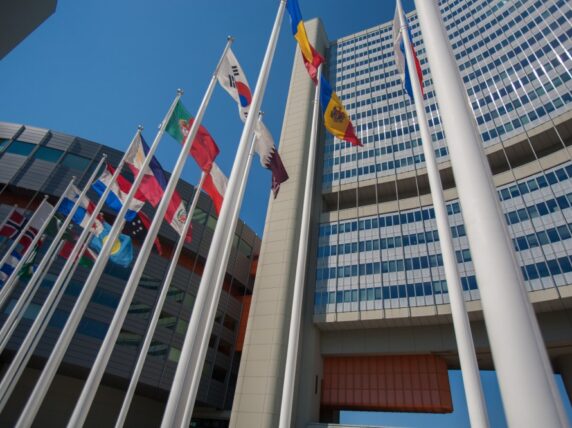Counter Terrorism Bill: Aid workers to be exempt from damaging law
22 January update: the bill was passed in the House of Commons with the amendment excluding aid workers from the “designated areas offence”. However, peacebuilding was not included in the amendment.
Bond and its members secured a crucial win this week that protects the rights of aid workers and their ability to respond to humanitarian crises.
After months of working with parliamentarians from all political parties, an amendment to the Counter Terrorism Bill was passed at the final stage of voting in the House of Lords, which excludes aid and humanitarian actors from the controversial “designated areas offence”.
The bill will now go to the House of Commons for a final vote, although the date of when this will happen is still unclear. Unfortunately, despite our interventions, peacebuilding was not included in the amendment as an exemption.
The proposed “designated areas offence” gives the government powers to designate all or part of a country, making it illegal for UK nationals and residents to enter or remain in that area. Under the original proposals, if an individual is unable to show they had “a reasonable excuse for entering or remaining in the designated area”, they could have received a sentence of up to 10 years in prison.
Although the government had said humanitarian aid delivery would count as a “reasonable excuse”, an individual would have only been able to invoke this defence after being charged with a criminal offence. Bond and its members had grave concerns about the chilling effect this could have on an organisation’s ability and willingness to respond to a humanitarian crisis.
Subscribe to our newsletter
Our weekly email newsletter, Network News, is an indispensable weekly digest of the latest updates on funding, jobs, resources, news and learning opportunities in the international development sector.
Get Network NewsAn amendment was put down by Lord Rosser at the report stage of the bill that excluded aid workers from the designated areas offence, which was successful by 220 votes to 191. The amendment garnered cross-party support, providing much-needed cover for the organisations responding to humanitarian crises across the world. At the third reading yesterday, defence minister The Earl Howe said that the government had reflected on the amendment and now supported it, saying that “while the opposition and the government took different approaches to the challenge, we were ultimately striving to achieve the same result.”
Despite significant lobbying from Bond and its members, peacebuilding was not included in the amendment as an exemption and is not currently on the face of the bill. This was raised at the third reading yesterday, but was rejected by the government, saying that they had to “draw a line at some point.”
However, The Earl Howe did state that peacebuilding activity would be covered by the proposed law, saying that “in the absence of such an exemption the government are clear that entering and remaining in a designated area for the purpose of engaging in peacebuilding would constitute a reasonable excuse.” He also said that there could be room in the future to add peacebuilding if it was operationally needed.
We at Bond believe that there is a crucial need for peacebuilding to be included and will be looking to consult members on next steps in the near future.
If you want to be involved, please contact Rowan Popplewell.
Category
News & views



